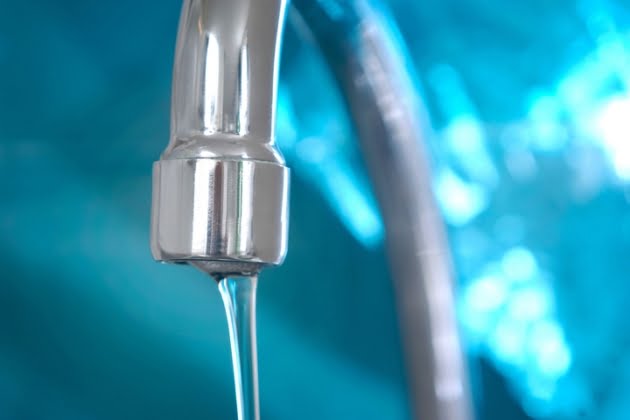Low water pressure can manifest itself in many ways, affecting various parts of your home. With poor water pressure, your showerhead may not produce the strong spray you desire. It will also take longer for faucets to fill an entire sink or bathtub. Even your washing machine and dishwasher are affected, taking more time to complete a cycle.
The average water pressure in most homes is around 40 to 45 psi. If you believe your plumbing system doesn’t provide water normally, chances are that the water pressure slipped below this threshold. Since there are so many different causes of low water pressure, it can be a difficult problem to fix on your own. Instead, consult a plumber for professional troubleshooting.
The following are seven possible causes of low water pressure in the house:
Cause #1: The water meter valve is not fully open.
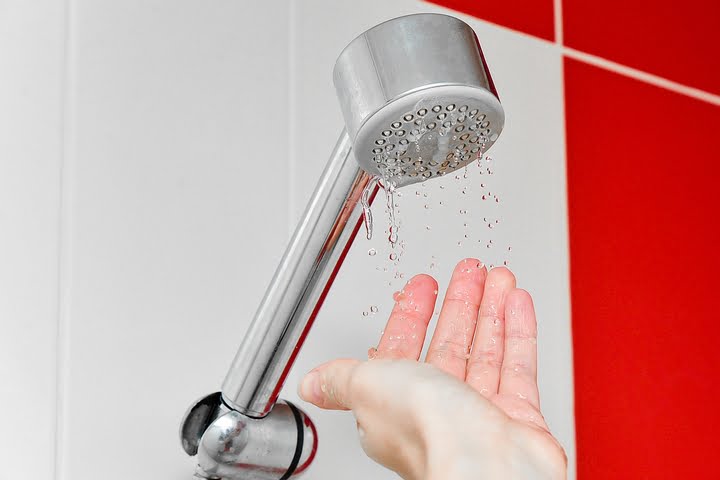
If you have poor water pressure in your home, especially after recent repairs, the culprit may be a partially open valve. Most homes have two major shutoff valves, which control the flow of water in your house. The first is called the water meter valve, while the second is known as the main house shutoff valve.
The water meter valve is usually installed next to the water meter. In most cases, only the water company’s personnel will use this valve. However, some homeowners may unknowingly make an adjustment to the valve during repairs. To ensure this valve is fully open, check if its handle is parallel to the water pipe. If it is positioned at an angle, that means it is not fully open.
The main house shutoff valve is usually installed inside the home, close to where the city’s main supply pipe enters your home. In warmer climates, this valve may be installed outdoors. When this shutoff valve is not opened properly, it may cause low water pressure in the house. For a gate valve, turn the handle in a counter-clockwise direction until it is fully open. If you’re working with a ball valve, see to it that the handle is parallel to the pipe direction.
Cause #2: The water pressure regulator is not working properly.
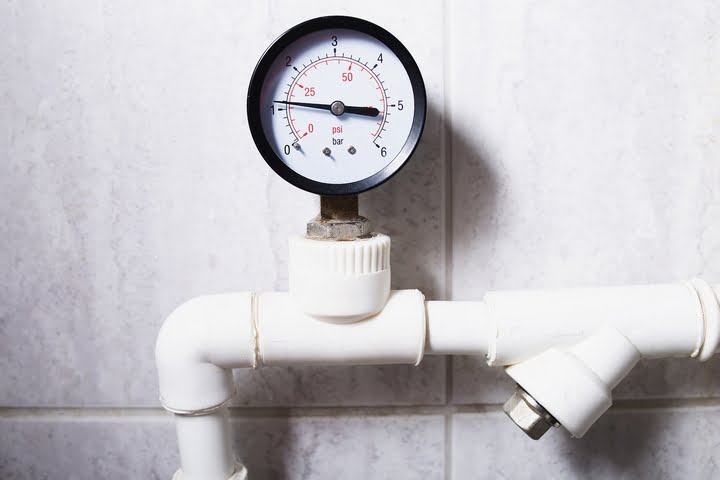
Quite often, a failing pressure regulator is the common cause of low water pressure in showers, faucets, and plumbing systems. The pressure regulator is a device that controls your plumbing system’s input pressure. It works by reducing the water pressure to a level that is safe for your pipes. While this fixture isn’t found in every household, it is frequently installed in many residential homes.
When a pressure regulator is faulty, this may result in a sudden upward surge in high water pressure. It can also have the opposite effect, causing low water pressure throughout the home. A broken pressure regulator can have widespread consequences, affecting the water pressure of every plumbing fixture in your home.
Cause #3: A leaking pipe is causing low water pressure.
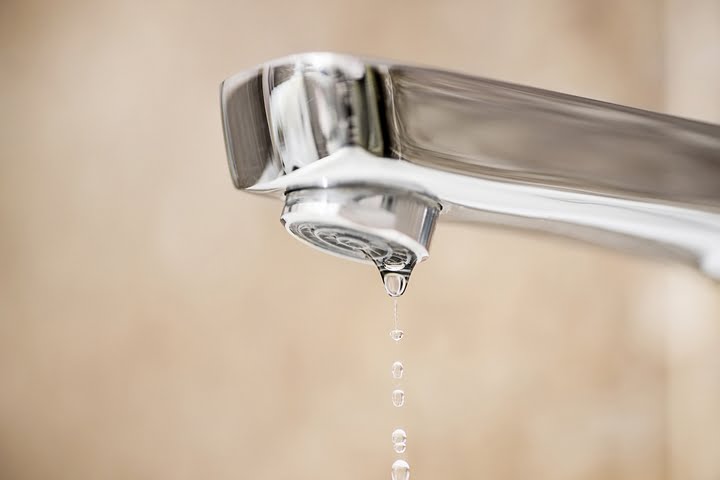
Leaking pipes misdirect the water supply. When this happens, you don’t get the full flow of water, even when all your other plumbing mechanisms work properly. However, a leak doesn’t have to cause low water pressure, unless it’s a pretty severe leak. If you notice your foundation or basement is flooded, you have a leaking pipe somewhere. Call an emergency plumber for help right away.
Cause #4: A clogged pipe is causing poor water pressure.
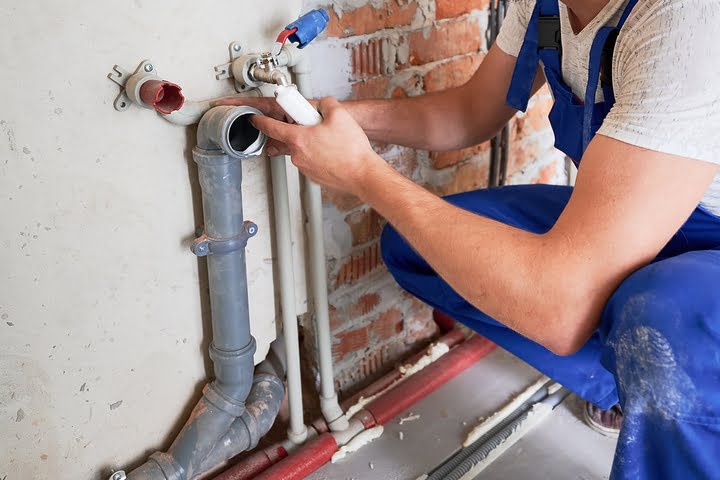
Clogs are not exclusive to drains. They can form deep inside your piping, and even the smallest clog can result in a sudden drop in water pressure. Clogged pipes are a nuisance as the problem can be located anywhere beneath your house. Homeowners are not recommended to just pull apart pipes without the right technical expertise. Contact a plumber for assistance instead.
Cause #5: There are old steel water pipes in your house.
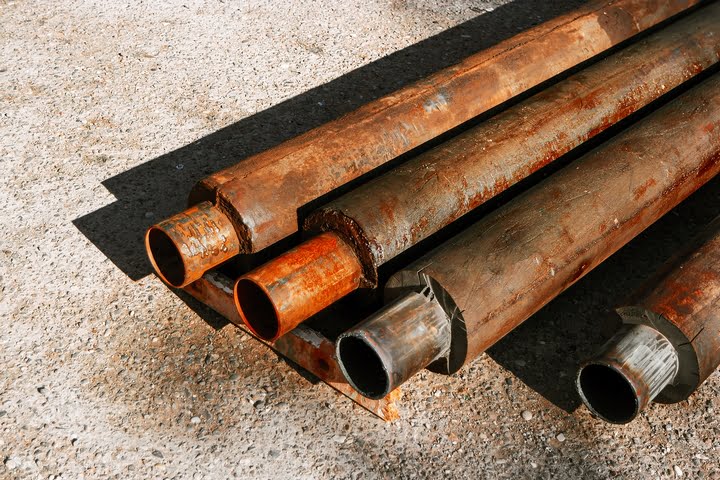
Old steel water pipes can potentially cause low water pressure in homes. Over time, galvanized steel water pipes tend to corrode to the point of restricting water flow. This is because the pipes are corroded on the inside, so the build-up of scale gradually closes the pipes.
Generally, this corrosion happens over decades, and the reduction in water pressure is very gradual. Unfortunately, there is only one solution for old and corroded pipes. You must re-pipe the entire system with new plastic or copper water supply piping.
Cause #6: Shared pipelines are affecting your water pressure.
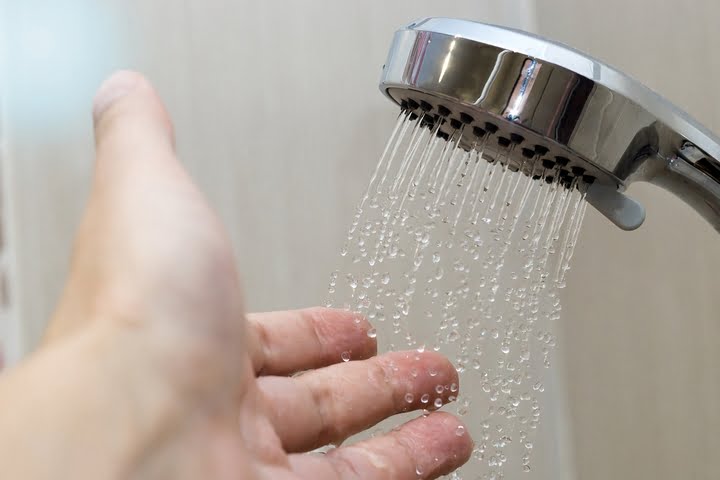
Shared pipelines supply water to more than one home. When one of the neighbours is washing their car or taking a shower, the water pressure in your home drops until they’re done. Luckily, that doesn’t mean you will be covering their water usage in your bills. However, both you and your neighbour will be impacted if you are consuming too much water at the same time.
If you only notice poor water pressure during a certain period of time, your neighbours are usually the problem. Try to investigate if the low water pressure is most likely to occur in the mornings, afternoons, or evenings. You may find that changing your routine might help, such as taking a shower at a different time of day.
Cause #7: The water supplier is experiencing a problem.
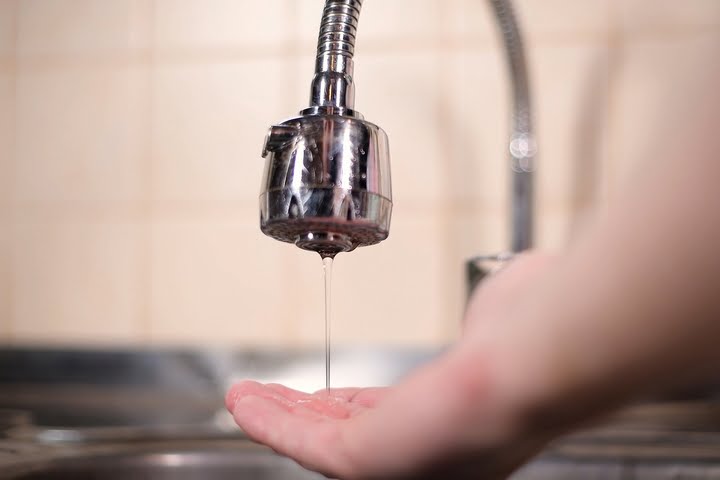
Before you start knocking on your pipes and adjusting valves, ask around to know if your neighbours experience similar issues. Your low water pressure may not be directly connected to an issue with your home’s plumbing system. Find out if the water supplier is aware of any issue in your area. If it’s something in the process of being fixed, you’ll just have to sit tight until the professionals are done.



